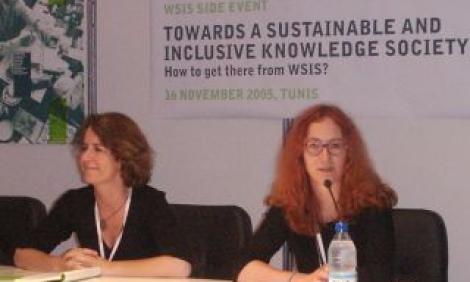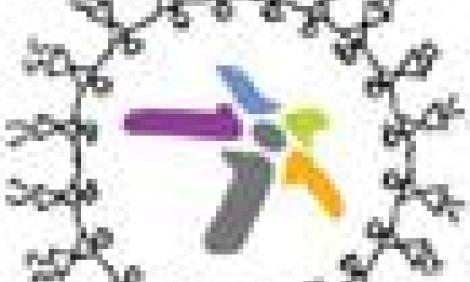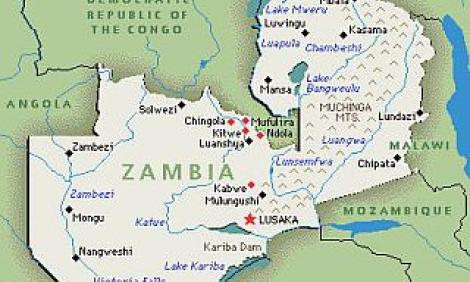In depth
Women and ICT in Colombia: an issue still not completely incorporated in feminist agendas
By Graciela Selaimen
Olga Paz, Administrative and Project Coordinator at Colnodo, a Colombian member of Association for Progressive Communications (APC), explains in this interview with GenderIT that in her country there is still not a clear gender perspective on national ICT policies and that there is still a way to go in achieving an understanding of the role of ICT as a political and strategic issue that can be…
In depth
Funding ICTs: where will the money come from?
By Brenda Zulu
The Digital Solidarity Fund (DSF) was proposed by Senegal's President Abdoulaye Wade at Phase I of the World Summit on Information Society (WSIS) Summit. It was inaugurated by the Nigerian President Olusegun Odasanjo in March 2005, in Geneva. This fund is seen a voluntary and complementary financing mechanism to supplement existing financial mechanism. It is registered in Switzerland.
In depth
Gender equality may constitute a normative consensus, but the political will is lacking
By Heike Jensen
Heike Jensen, researcher and lecturer at the Department of Gender Studies of Humboldt University in Berlin, (Germany), is one of those hardworking gender advocates, whose “effort and time spent gathering information, sleepless nights, many cups of coffee, talking, training, skills sharing, lobbying and writing” focussed on integrating gender as a relevant dimension of WSIS process and outcomes.…
In depth
ICT gender issues past, present and future
By Brenda Zulu
As women living in Africa we have many things to confront: the process of African enlargement and our participation in the globalised world, the decline of national states, the dominance of market and consumerism, growing poverty, social and political inequalities or insecurities within Africa and outside in the face of neo-conservatism and dominance of the United States.
In depth
From Geek to the WSIS Gender Caucus
By Jac sm Kee
Jac sm Kee grabs a conversation with Jacqueline A. Morris during WSIS PrepComm3 at Geneva, and finds out about how a girl from Trinidad & Tobago ends up being a gender & ICT advocate, her insights about the two priority issues in WSIS Phase II – financing and internet governance – as well as the efficacy of the WSIS Gender Caucus.
In depth
Publication Digitall Future gives a feminist perspective to the Information Society
By
A team of feminist journalists from Asia, Latin America, North Africa, the Middle East and Eastern and Western Europe will take part in the World Summit on Information Society (WSIS) from November 16-18th in Tunis, Tunisia.
In depth
WSIS Tunis: In the face of police repression, civil society cancels activities
By
Many international NGOs taking part in the World Summit on the Information Society (WSIS) have collectively decided to cancel their activities planned for today, November 15, at WSIS. This measure is to make government, private sector and civil society delegates aware of the human rights violations that have been adding up over the last two days including beatings of journalists by police and the…
In depth
Africa Grassroot Caucus prioritise the WSIS and MDGs as part of development
By Brenda Zulu
Africa Grassroots Caucus has prioritised the World Summit on Information Society (WSIS) and the Millennium Development Goals (MDGs) as part of development. This was the outcome of the second Grassroots Caucus Regional Consultation that took place in Lusaka, Zambia on 26-28 July 2005. The participants from Kenya, Uganda, Zimbabwe, Zambia, Congo Brazzaville and the Democratic Republic of Congo…
In depth
Gender an issue in ICT policy formulation: lessons from Zambia
By Brenda Zulu
Zambia, like many other African countries, has recognized information, knowledge and technology as major drivers of social and economic development. Zambia made a decision to adopt information and communication technologies (ICT) as part of national development, expecting to narrow the digital divide and leap-frog the development process. While the government is committed to pursue appropriate…
In depth
Mobile Help-line for Women Tops Gender and ICT
By
Pallitathya, an innovative Mobile Help-Line programme via cell phones for underprivileged women in rural Bangladesh beat thirty other entries from all over the Asia-Pacific to win this year's Gender and Information…












